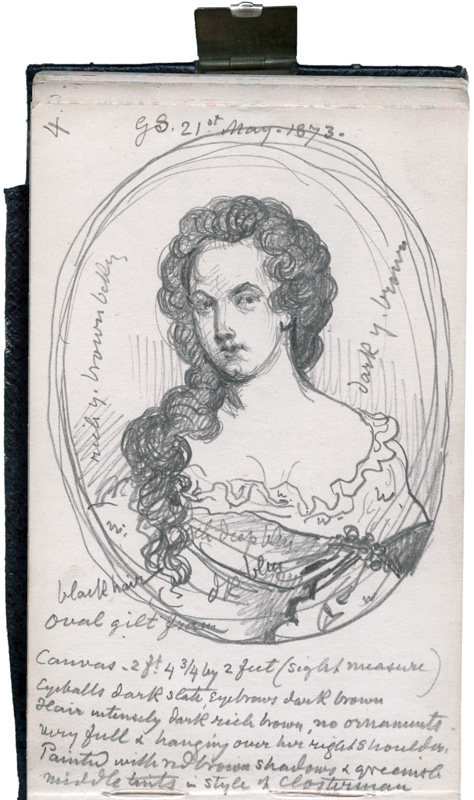
Aphra Behn: The Podcast
Author, spy, political propagandist, Aphra Behn (1640–1689) was one of the first English women to earn a living by her pen. Set against the tumultuous backdrop of the English Civil Wars, expanding transatlantic slave trade, and settler colonialism in the Americas, Behn’s work engages with frankness and complexity a range of topics, from gender identity to political power. This podcast celebrates the 350th anniversary of the first public performance of a work by Behn, surveying major trends across translations of romances and scientific texts, timely plays, erotic poetry, and an anti-slavery novella. Researched, written, and produced by University of Alabama undergraduates during the coronavirus global pandemic in the spring of 2021, this limited series provides the public with a primer to one of the most influential writers in English you’ve never heard of.
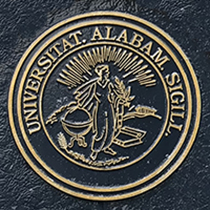
Campus Historical Markers
Many people, places, and events which left an impression on the University of Alabama and surrounding community have been commemorated in historical markers and plaques around the campus. This is a collection of those public accounts of our history, in both image and text. Sections include Antebellum Campus, Confederate Commemoration, University Integration, Building Names, Fraternities & Sororities, and Other Historical.

Digitizing The Marginalia of John Stuart Mill
This project is being conducted in partnership with the Special Collections division of the Library of Somerville College, Oxford, which houses the library of John Stuart Mill and his father, James Mill. We are working together to create a multi-faceted open access digital resource showcasing the manuscript marginalia written in texts by both J. S. Mill and his father, enabling researchers and students to read these alongside scholarly writing about these materials. The website will also furnish researchers with a suite of supporting materials giving context to the marginalia, and more broadly the rest of Mill’s holdings.
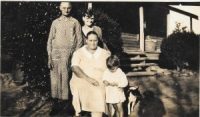
Dirt Poor
Dr. Karen Gardiner’s EN 455 (Advanced Studies in Writing) course has students recovering family stories from the Great Depression, contextualizing the person they study into their historical and cultural context, and then writing essays that convey that information to a wider audience. The class website maps these stories, as well as archiving the essays the students crafted about their family members to serve as an archive of their lives during the Great Depression.
View Dirt Poor
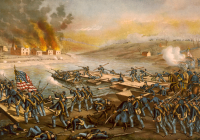
George C. Rable Civil War Indexes
On this website is a set of indexes to published primary sources (books and periodicals) dealing with the American Civil War that I have created over the past fifteen years or so. This began when I was on the road a great deal and so would take along collections of letters or diaries to examine for various research projects. I began noting items that might be of future use to my students or myself but soon expanded the scope to create rough subject indexes for each volume or article. Included is material from soldiers and civilians, Union and Confederate, items produced by a single individual as well some more general compilations. At this point the collection includes over one thousand book indexes and a large number of indexed articles. The collection is growing, and I plan on making continuous additions.
View the George C. Rable Civil War Indexes
Vietnam War Oral History Archive
This oral history archive has been created by students in Dr. Sarah Steinbock-Pratt’s class on the Vietnam War. The course explores the long history of the Vietnam War, beginning with early Vietnamese history and colonization. Over the course of the semester, students have explored different perspectives on the wars in Vietnam, American and Vietnamese notions of freedom during the Cold War, the intersection of domestic and foreign policies and politics, the construction of ideas about race, gender, and national identity, the politics of memory and the conflicted ways that the war has been remembered and commemorated. They then conducted oral history interviews and crafted websites to places these interviews into historical context.
View the Vietnam War Oral History Archive

Bringing the Past to Life: Old Spanish in the Digital Age
Erin O’Rourke’s Spanish 485/585 class analyzed the changes in the Spanish language through recording themselves speaking the old pronunciations and annotating their own pieces to demonstrate where changes occurred.
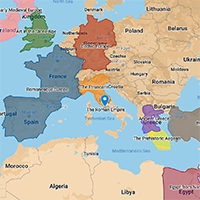
ARTMap
ARTmap was created by Professor Jenny Tucker to be used in conjunction with the introductory level ARH 252/253 course work. The project covers the history of art from the Stone Age to the late 20th century. Each module provides a deeper look into key art works, establishes geographic context, and provides opportunity for discussion. The site is centered around an interactive map that links students to text, images, videos, and museum websites. ARTmap supplements the course curriculum by creating a more comprehensive understanding of the function of art in society past and present.
View ARTmap
